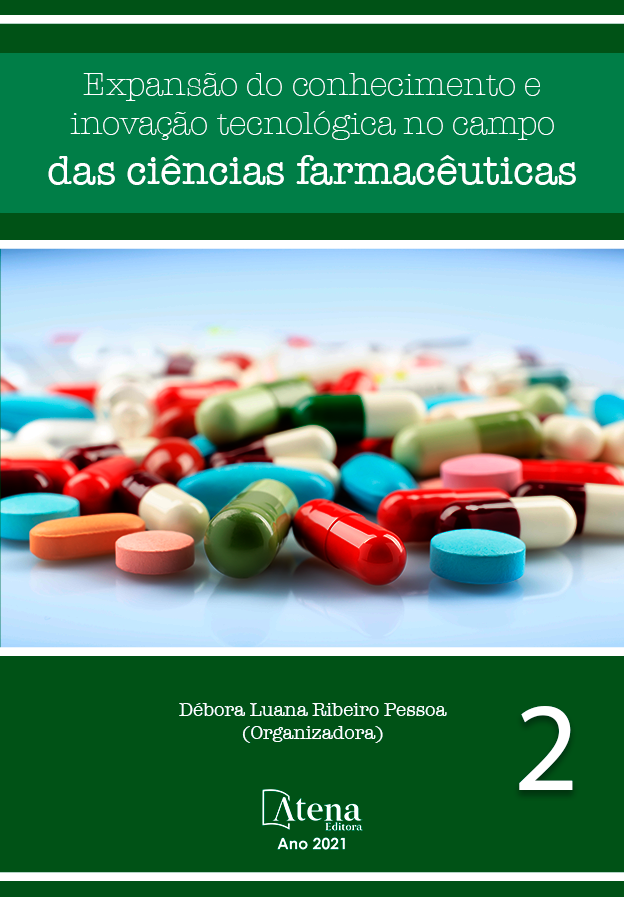
AVALIAÇÃO DA RESISTÊNCIA AOS ANTIMICROBIANOS DOS MICRO-ORGANISMOS ISOLADOS DA CAVIDADE BUCAL DE PACIENTES IDOSOS HOSPITALIZADOS
As Infecções Relacionadas à Assistência à Saúde (IRAS) são consideradas as principais causas de mortalidade no âmbito hospitalar. Diante da possibilidade de micro-organismos da cavidade bucal causarem infecções pulmonares, o presente estudo teve como objetivo identificar os micro-organismos que colonizam a cavidade bucal de pacientes idosos durante a hospitalização e determinar sua resistência frente aos antimicrobianos, além de observar a produção de biofilme nas amostras e avaliar a capacidade de alguns antissépticos bucais reduzirem a formação do biofilme bucal. A microbiota bucal de 34 pacientes idosos com idade igual ou superior a 60 anos foi estudada em três períodos. As amostras foram coletadas do dorso da língua no início do internamento e em intervalos de 48 horas durante os cinco primeiros dias de internamento, totalizando três coletas designadas como A, B e C. Observou-se que 67,6% dos pacientes estavam colonizados por Staphylococcus coagulase negativa; 55,9% por Staphylococcus aureus; 29,4% por Enterobactérias; e 32,3% por Enterococcus faecalis. Os isolados de Staphylococcus coagulase negativa de pacientes com maior tempo de hospitalização apresentaram maiores taxas de resistência e produziram mais biofilme, mostrando que pode haver relação entre a produção do biofilme e a resistência bacteriana. Os antissépticos bucais testados mostraram-se ativos na redução da formação do biofilme, in vitro. O presente estudo mostrou que a higiene adequada da cavidade bucal de pacientes internados, associada ao uso de antissépticos é capaz de controlar a microbiota bucal, diminuindo o risco de infecções, beneficiando o paciente e reduzindo os custos hospitalares.
AVALIAÇÃO DA RESISTÊNCIA AOS ANTIMICROBIANOS DOS MICRO-ORGANISMOS ISOLADOS DA CAVIDADE BUCAL DE PACIENTES IDOSOS HOSPITALIZADOS
-
DOI: 10.22533/at.ed.5492127095
-
Palavras-chave: cavidade bucal; antibiograma; biofilme; antisséptico bucal.
-
Keywords: oral cavity; resistance; biofilm; mouthwash.
-
Abstract:
Healthcare associated infections (HAI) are considered the leading causes of mortality in hospital environment. Faced with the possibility that oral-cavity microorganisms cause lung infections, this study aimed to identify the microorganisms that colonize the oral cavity of elderly patients during admittance and determine their resistance against antimicrobials, in addition to observing the biofilm production in the samples and evaluate the efficiency of mouthwashes to reduce dental plaque formation. The oral microbiota of 34 elderly patients aged 60 and higher were studied in three periods. The samples were collected from the back of the tongue at the beginning of the admittance and in 48-hour intervals during the first five days of admittance, coming to a total of three collections designated as A, B and C. It was observed that 67.6% of patients were colonized by Coagulase-negative Staphylococcus; 55.9% by Staphylococcus aureus; 29.4% by Enterobacteria and 32.3% by Enterococcus faecalis. Isolates of Staphylococcus sp. in patients with higher admittance time presented higher resistance rates and produced more biofilm, then, showing that there may be relationship between the production of biofilm and bacterial resistance. The mouthwashes tested in the study proved to be active in the reduction of biofilm formation, in vitro. This study showed that proper hygiene of the oral cavity of admitted patients, associated with the use of antiseptics, makes it possible to control the oral microbiota, reducing the risk of infection, benefiting the patient and reducing hospital expenses.
-
Número de páginas: 15
- Letícia Lopes Menezes Almeida
- Larissa Guidolin
- Camila Thomaz dos Santos
- Eduardo Bauml Campagnoli
- Luis Antonio Esmerino


